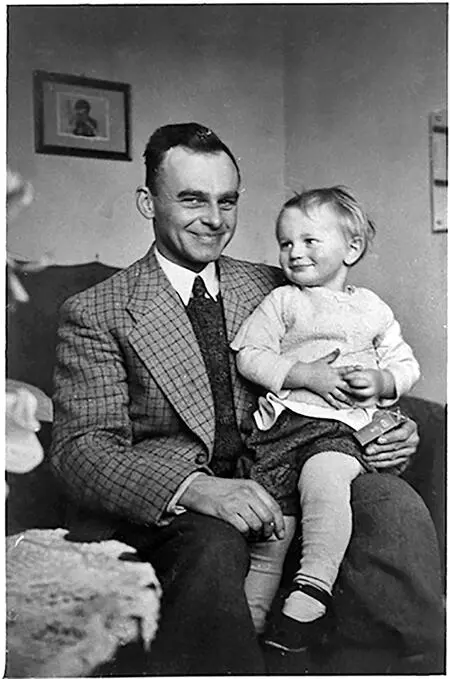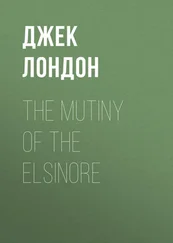Governor Frank, believing he no longer had to worry about negative coverage in the foreign media, ordered mass roundups of military-age men. On June 20, 358 people were shot in the Palmiry woods. Thousands more were deported to concentration camps in Germany. On one occasion, Witold was nearly caught when the SS raided Eleonora’s flat. He heard trucks outside and just had time to hide documents under the floorboards and slip out the door before the police barged in and rifled through the apartment. He moved from safe house to safe house and started using the identity papers of one Tomasz Serafiński, which he’d picked up at one apartment. 44
The intensified crackdown damaged Witold’s network. A Gestapo raid on the Bodega saw most of the waiters arrested. Their places were filled by new recruits, but this time the Gestapo managed to plant a spy among them. She was a flighty young Pole who had fallen for an SS officer, and she supplied him with several names, including one of Witold’s colleagues who also happened to be her uncle, a gynecologist named Władysław Dering. On July 3, 1940, shortly before dawn, the SS dragged Dering and his wife from their flat. 45
The underground wasn’t sure what happened to Dering, but reports were emerging that the SS had opened a concentration camp in a former Polish army barracks outside the small town of Oświęcim in June. The Germans called the place Auschwitz. Such camps had been a common feature of political life in Germany since Hitler’s rise to power. Under emergency decree, Hitler had approved the indefinite detention or “protective custody” of any citizen the SS judged to be an enemy of the state. By the start of the war, the Nazis had detained thousands of politicians, left-wing activists, Jews, homosexuals, and other so-called social deviants in half a dozen camps across Germany. 46
The Nazis hadn’t pioneered the concept of locking up their opponents, but Auschwitz was different because it was the first German camp to target a group according to its nationality, in this case Poles. At that point, the Germans did not distinguish between the ethnic backgrounds of the Poles they sent to the camp: Catholics predominated, but there were Jews and ethnic Germans among the first prisoners. Auschwitz’s aim was to crush the resistance of men like Witold. 47
The underground knew little about the place but heard that the Germans were dispatching more and more prisoners to the camp. By August of that year, more than a thousand people were held there. Letters from prisoners in the camp revealed little. But the violence of Auschwitz was suggested by the number of death notices the SS sent to the families of deceased inmates and their occasionally blood-splattered personal effects. 48
A few weeks later in August, Tajna Armia Polska’s chief of staff, Władysław Surmacki, was arrested, and Jan convened an emergency meeting at Jadwiga’s. The heat was stifling, and cigarette smoke hung in the air. Jan called the room to order. He began by announcing the group’s merger with the mainstream underground, just as Witold had urged. 49
Then Jan turned to Witold. The tension between the two men was palpable.
“A great honor has befallen you,” said Jan. 50
The camp had come up in his discussions with Rowecki, he explained. Rowecki believed that so long as the place remained shrouded in secrecy, the Germans could get away with anything there. He needed someone to infiltrate the camp, gain intelligence, and, if possible, raise a resistance cell and stage a breakout. 51
“I’ve mentioned your name to Rowecki as the only officer capable of doing this,” said Jan. 52
Witold struggled to hide his shock. He knew that he was being punished for his refusal to back Jan’s ideology, but he wasn’t going to give him the satisfaction of a reaction. Jan continued: a police informant had alerted him that the Germans planned a mass roundup in a few days. The SS wanted to send anyone with an education or who appeared to be an intellectual to Auschwitz. Those suspected of resistance work were likely to be shot immediately. Here was a means to get sent to the camp.
But given the risks, Jan couldn’t order Witold to take the mission.
He needed him to volunteer. 53
Witold’s mind raced. Walking into a German roundup was madness. Even if the Germans didn’t shoot him at once, he might still be interrogated and exposed. And what if he made it to Auschwitz? If the camp was as violent as the underground feared, his prospects of forging a resistance group and staging an uprising seemed dim. And if it was just another internment facility, then he might spend months or longer languishing in captivity when the center of action was in Warsaw. He weighed those risks against the fact that he had pushed Jan to accept Rowecki’s leadership. How would it look if he balked at the very first request Rowecki gave? He was trapped. 54
Witold told Jan he needed time to think it over. The days passed as he contemplated the decision. In his later writings Witold makes no mention of fear for his own safety, but he must have worried about his family. Maria had accepted his work for the underground in Warsaw, which allowed him to make occasional visits to Ostrów Mazowiecka and be on hand in case of an emergency. Going to Auschwitz meant abandoning her and potentially exposing the family to German reprisals if discovered. 55
The roundup began on August 12 as Witold equivocated. SS men and police set up roadblocks on the main roads around the city center and started hauling military-age men off the streets. “Naturally, the action was not conducted particularly gently,” noted the diarist Ludwik Landau. “Trams were stopped at bayonet point, with threats to use them if anyone tried to escape; apparently, two people were killed attempting to slip away, one bayoneted, the second shot.” More than 1,500 men were arrested over the course of an afternoon. Witold kept his thoughts to himself. “He would sit silently brooding on the subject, and I knew not to ask him about it,” recalled Eleonora. 56
Jan met Witold a few days later with news. Dering and Surmacki were confirmed in Auschwitz. “Oh, you missed a fine opportunity,” Jan needled him. 57
Witold’s response is not recorded, but knowing his colleagues were in the camp might have been the decisive factor persuading him to set aside his concerns and accept the mission. He’d been friends with Dering since the Bolshevik campaign, and Surmacki was a neighbor of his from the Lida area. 58
He was ready to volunteer, he told Jan. A second roundup was scheduled to take place in Żoliborz in a few weeks’ time when he planned to be taken. Having made his decision, he now embraced the practicalities of preparing for his impending arrest, handing the management of his men and recruitment role to others. He made a final trip to see Maria and the children, but decided against telling her about his mission. It was better that she be able to claim ignorance if the Gestapo came calling. Maria knew only that he had been selected for an important mission and that Witold had once again chosen his country over his family. 59

Witold and Marek, c. 1940.
Courtesy of the Pilecki family.
***
On September 18, Witold packed his possessions into a knapsack and headed to Eleonora’s apartment. The Germans were likely to raid the block during their sweep of the area the following morning. There was the air of a last supper as he dined with her and his little nephew, Marek. Witold appeared calm as the boy was put to bed in the next room, and he and Eleonora double-checked the apartment to ensure there weren’t any incriminating documents on hand. 60
Читать дальше













